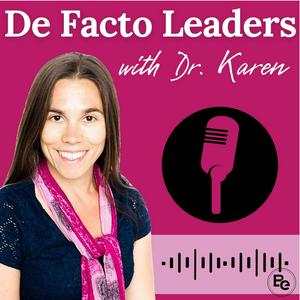When I first started working in the schools in the early 2000s, there was a push for integrating technology into classrooms and therapy sessions
It was even a box that got checked on my employee evaluation.
Now there’s a defined space referred to as “EdTech”.
It took me a while to realize that this was a thing, and I didn’t even realize I was a part of it until someone referred to me as the “EdTech person” during a job interview (they were “FinTech” people, short for “Financial Technology”).
In the work I do now creating a caseload management system, I often think about how important it is to define who the intended user of technology is. In product development, we refer to this as the “end user”.
Sometimes the end user is an administrator pulling analytics or managing the budget.
Sometimes it’s a teacher or clinician collecting data, managing a schedule, tracking referrals, or trying to reduce the administrative burden of their jobs so they can focus on human connection instead of paperwork.
Sometimes it’s a professional providing virtual therapy to students to increase access to services.
And sometimes, the end user is the student.
When we think about how technology is helping or hurting education, we have to look at each of these verticals separately.
A common answer I get when I talked to district leaders about technology is this:
“We know technology has caused problems and is often poorly utilized. But what we were doing before wasn’t working either.”
We had service deserts where therapy wasn’t accessible.
There were clinicians spending hours on paperwork or data collection.
We had administrators without the data they needed to evaluate what’s working or manage fiscal resources.
That’s why I wanted to have a conversation about how technology is being used, and what is and isn’t working.
I invited Maura Connor from BetterSpeech on to this episode to start the conversation.
This episode is the first half of our interview.
Maura Connor is an accomplished executive leader with deep expertise at the intersection of education and healthcare technology. She currently serves as Chief Operating Officer of Better Speech, where she is leading the launch of Streamline, an AI-powered special education management platform that helps districts reduce administrative complexity for providers and teachers, ensure compliance visibility, and strengthen support for students and families. With a career spanning executive roles in ed tech, health tech, and clinical operations, Maura has built a reputation for scaling organizations, driving innovation, and leading high-performing teams through periods of transformation. Her work focuses on uniting vision, strategy, and execution to deliver measurable outcomes for schools, clinicians, and the communities they serve. Maura is passionate about advancing solutions that enable educators and clinicians to spend more time on direct impact—helping children grow, thrive, and reach their potential—while ensuring that systems of care are more efficient, compliant, and sustainable.
You can connect with Maura on LinkedIn here: https://www.linkedin.com/in/maura-connor-2508929/
Learn more about BetterSpeech’s telehealth platform and services here: https://www.betterspeech.com/
Learn more about Streamline by BetterSpeech here: https://www.streamline-sped.com/why-streamline
Streamline is an AI solution that automates evaluation, service tracking, and compliance workflows, freeing up time for clinical judgement and engagement.
In this episode, I mentioned Language Therapy Advance Foundations, my program that gives speech pathologists a framework for building language skills needed to thrive in school, social situations, and daily life. You can learn more about the program here: https://drkarenspeech.com/languagetherapy
We’re thrilled to be sponsored by IXL.
IXL’s comprehensive teaching and learning platform for math, language arts, science, and social studies is accelerating achievement in 95 of the top 100 U.S. school districts. Loved by teachers and backed by independent research from Johns Hopkins University, IXL can help you do the following and more:
Simplify and streamline technology
Save teachers’ time
Reliably meet Tier 1 standards
Improve student performance on state assessments
🚀 Ready to see why leading districts trust IXL for their educational needs? Visit IXL.com/BE today to learn more about how IXL can elevate your school or district.


